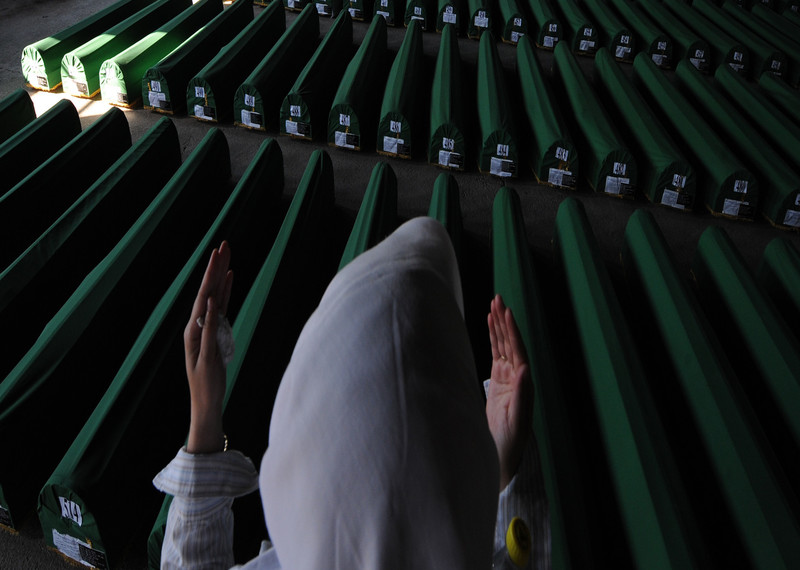Reacting to the UN General Assembly’s adoption of a resolution establishing 11 July as an official International Day of Reflection and Commemoration of the 1995 Genocide in Srebrenica, Jelena Sesar, Amnesty International’s Europe Researcher, said:
“This long overdue resolution represents an important public recognition of the victims and their families and pays rightful tribute to survivors who have fought for nearly 30 years to keep the memory of the harrowing events in Srebrenica alive.
“Sadly, authorities in some parts of Bosnia and Herzegovina and the region continue to deny the crimes and engage in dangerous glorification of those convicted of genocide and crimes against humanity. This despite the fact that international courts have proven beyond any doubt that the killing of more than 8,000 men and boys in 1995 constituted an act of genocide.
This long overdue resolution represents an important pays rightful tribute to survivors who have fought for nearly 30 years to keep the memory of the harrowing events in Srebrenica alive
Jelena Sesar, Amnesty International
“Rather than just an act of remembrance, the resolution underscores the collective commitment to justice, truth and reparation and the determination to learn from past atrocities to prevent similar crimes in the future. It must encourage the global community to confront and counteract genocide denial and invest in education and other public information programs to safeguard historical facts and prevent genocide before it occurs.”
Background
The Resolution was jointly proposed by Germany and Rwanda and was co-sponsored by the United States, France, and Bosnia and Herzegovina – among others. It received the support of 84 of 171 UN member states.
The International Criminal Tribunal for the former Yugoslavia (ICTY) and the International Court of Justice (ICJ) affirmed that the crimes committed in Srebrenica constituted acts of genocide.
More than 8,000 Bosnian Muslim men and boys were killed after the Bosnian Serb Army attacked Srebrenica, a designated UN “safe area”, on 10-11 July 1995, despite the presence of UN peacekeepers.
While the bodies of more than 7,000 victims of the Srebrenica genocide have been exhumed, identified and buried, more than 1,000 people are still missing or their remains awaiting recovery and identification.
For more information, please contact [email protected]


